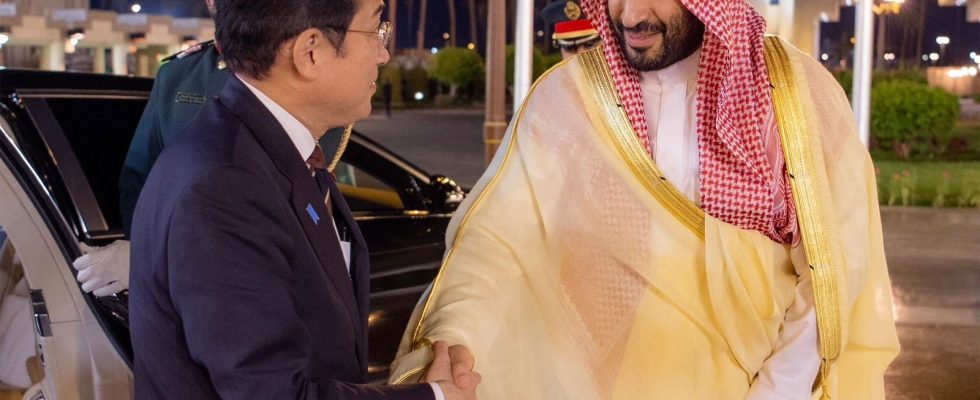“The problem with Saudi Arabia is that you never know when the next Khashoggi case [NDLR : du nom de ce journaliste assassiné en 2018] going to fall…” This confidence, made at the beginning of the month by a good connoisseur of the Wahhabi kingdom, takes on a new echo with the publication, on August 21, of a damning report by Human Rights Watch: the Saudi border guards are accused of killing hundreds of Ethiopian migrants between March 2022 and June 2023. “Saudi operatives used explosives and fired at people at close range, including women and children, in a large-scale crackdown scale and systematic”, writes the American NGO, which collected 42 testimonies from victims and identified eight mass graves on the border between Saudi Arabia and Yemen. Riyadh rejects “unfounded” accusations, not based “on reliable sources”.
Always the same timid reactions from the West
Despite the horror detailed by Human Rights Watch, international reactions so far appear muted. The Biden administration, which dreams of normalizing the relationship between Riyadh and Israel by the US election in November 2024, paid lip service to “an independent and thorough investigation”, when a UN spokesperson s is simply said to be “very worried” about the situation. In France, the Quai d’Orsay reacted by taking “note” of the HRW report and also asking for an independent investigation. “Not surprisingly, these international reactions are consistent with the absence of a strong message when it comes to Saudi Arabia, asks Nadia Hardman, researcher at Human Rights Watch and author of the report. Governments always use the same language – ‘we are worried’, ‘we need an independent investigation’ – when they could take concrete and immediate action, for example by building a mechanism at the UN to investigate these murders and determine whether These are crimes against humanity.”
This HRW report comes in the midst of massive Saudi Arabian investment abroad, particularly in sport, and the increased diplomatic influence of Crown Prince Mohammed bin Salman. In addition to its oil and its gas, essential to Europe since the blocking of Russian hydrocarbons, Riyadh is trying to impose itself as a peacemaker in Ukraine and is becoming an interlocutor of choice for China and the West. Symbol of this new place of choice on the world stage, Saudi Arabia obtained its integration into the BRICS group (Brazil, Russia, India, China, South Africa), this Thursday, August 24.
This time, Mohammed Ben Salman (MBS) seems in a much better position than in 2018, when the crown prince found himself ostracized from the international community after the murder of journalist Jamal Khashoggi, dismembered in the Saudi consulate in Istanbul. “Over the past year, the policy pursued by the Saudi government has changed its image and that of the country, which is much more accepted in the world game, underlines Kristin Diwan, researcher at the Arab Gulf States Institute, in Washington. football to governments, understood that Saudi Arabia and its leaders were going to become essential on the international scene, and that this rise could favor their own interests.
The dark side of Saudi Arabia never far away
With Neymar and Karim Benzema as new standard bearers, bought this summer to play in the local football championship, Saudi Arabia seems a far cry from its pariah status of five years ago. “The Saudis are excellent at spending huge amounts of money to divert attention,” says Nadia Hardman. Prince MBS has seen the red carpet rolled out in Paris twice in less than a year and is expected to return to France in November to, he hopes, win the organization of the 2030 World Expo.
But the non-respect of human rights, long reproached to the kingdom, remains a thorn in the side of the soft-power Saudi Arabia: with each such case, the dark side of Saudi Arabia resurfaces. Admittedly, Saudi society has liberalized in an impressive way in recent years, with more freedoms for women in particular, but Riyadh has never practiced the death penalty as much as under the reign of MBS. Any opposition to power is heavily sanctioned.
And Human Rights Watch’s revelations may call into question the country’s real progress. “Saudi Arabia spends billions of dollars on sports-washing [pour laver son image via le sport]but these human rights abuses should make everyone who attends or organizes events in this country think twice,” said HRW’s Nadia Hardman. Benzema, Cristiano Ronaldo or Neymar are unlikely to listen to this advice.
